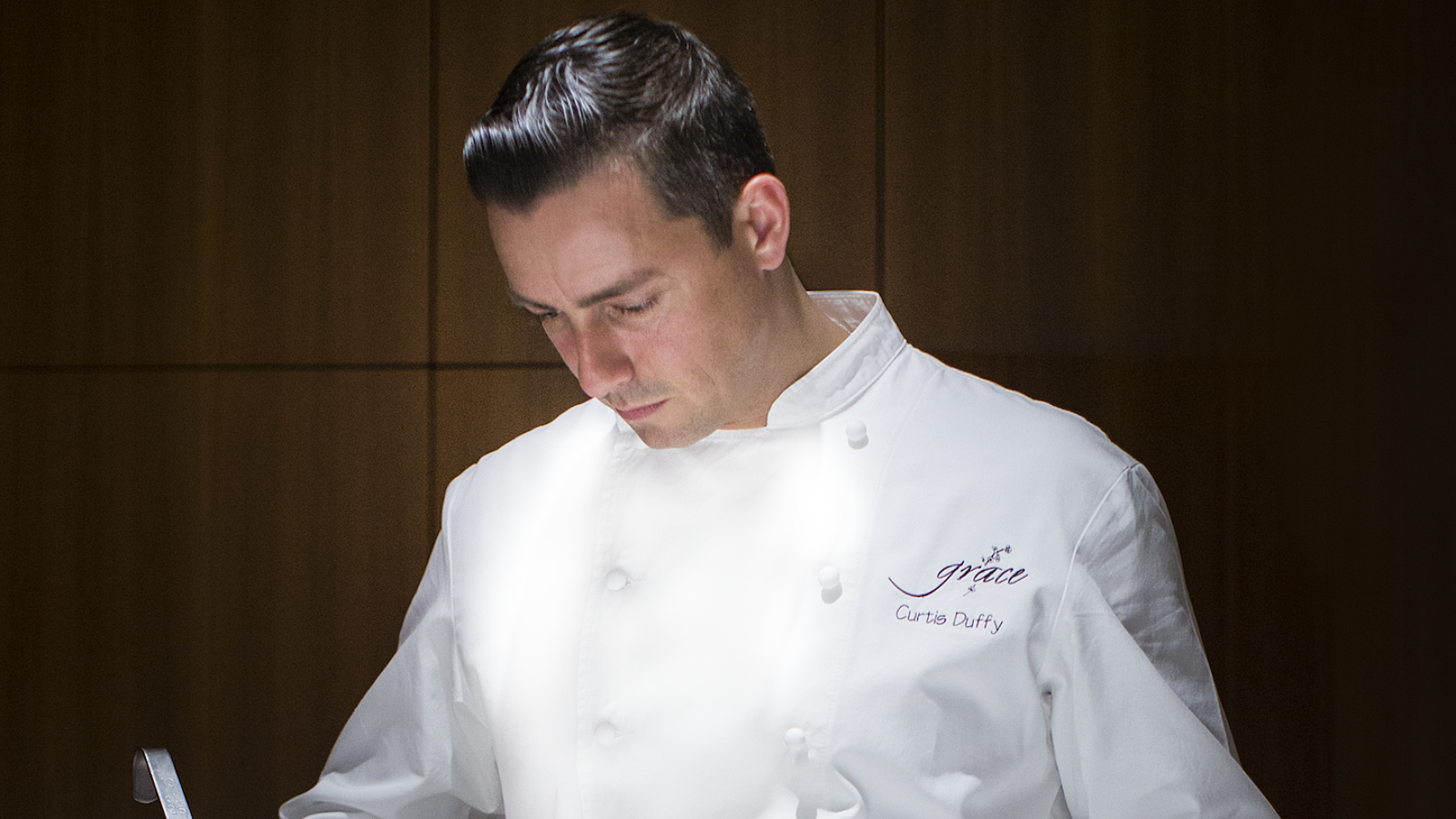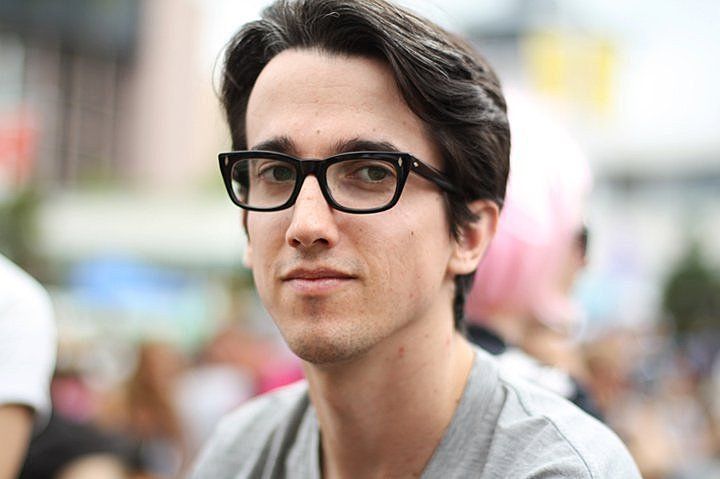Review: For Grace
Hugh Lilly on Kevin Pang's undercooked restaurant doco
The best kind of cinematic profile of a creative personality is one that critically examines its subject while giving equal time to contextualising his success. Any documentary-maker who tries to weave a strong humanistic thread into such a film, in order to display the ‘real’ side of their star’s character at the expense of this context, is taking a risk. Striking this balance is not easy, and not many directors achieve it. In recent memory, David Gelb’s Jiro Dreams of Sushi is one such film. Gelb pulled it off because, in the final product, Jiro’s life philosophy is as well-represented as his tiny yet world-renowned sushi restaurant in Ginza.
Since 2011, the Chicago Tribune’s food writer, Kevin Pang, who is also a filmmaker, has been following the high-flying career of Curtis Duffy, a chef whose natural skill in the kitchen almost went unrealised. His junior-high home-economics teacher, Ruth Snider, saw Duffy’s innate talent when he was in the eighth grade, and helped him develop it.
Pang and his co-director, Mark Helenowski, have made a film that chronicles Duffy’s departure from Avenues — a renowned Chicago restaurant where he was chef de cuisine — to devote himself to building his own restaurant, Grace. At film’s end, Duffy and his colleagues receive the news that Grace, after being open for only a year, is awarded three Michelin stars — the highest possible accolade from the most respected fine-dining guide in the world. Duffy overcame a significant family tragedy on the way to this pinnacle, and it is this ‘survivor’ aspect of his character, and how it dovetails with his former teacher’s tireless encouragement and dedication, that the directors have chosen to highlight. Problem is, that journey is to the detriment of conveying much in the way of background to his success as a culinary artist.
Helenowski was present at the screening I attended. Both before and after the presentation, he emphasised that the original idea for the film was to examine a world little-seen by most of us: a restaurant experience that cost upwards of US$1000 for dinner for two. Aside from some scattered, brief discussion of the food itself, and a few scenes showing the lengths to which restaurant staff research diners (which they treat more as clients), very little of this perspective remains in the finished film, which is a pity. In the middle of the film, there’s a yearbook-like graphic that shows all the famous Chicago chefs — Duffy included — who became famous after having left Charlie Trotter’s, a world-famous Chicago restaurant, but this is left hanging.
When Duffy goes to eat at Trotter’s one last time after it’s announced that it will close, the filmmakers stumble upon a juicy story: from a distance, we see Duffy trying to get into the restaurant only to be shouted at. “Have you sued anybody lately?” we hear the man yelling, along with something about “$50,000.” The camera drops the shot, and we see the pavement for a few seconds. Duffy gives only one line of context: he has no idea what lawsuit they were talking about; he doesn’t remember signing anything about a class-action. Similarly, we aren’t told what it was about Trotter — other than some off-the-cuff remarks about him being extremely difficult to work with — that made all those chefs so good at what they do that they were able to go out and make their own world-class restaurants after leaving.
For Grace gives almost no socio-political context to Duffy’s career, nor is there very much on the architecture, design, planning, and construction of the restaurant itself. In fact, the film concentrates so much on its star’s reserved yet cocky personality that it becomes a tad uninteresting — especially by the end, when Grace finally opens, nine months late and bearing a US$2.5m price-tag.
The film is much more akin to a profile of a famed athlete than an innovative, world-class chef. Early on, we see Duffy, brimming with machismo and athleticism, in the gym at 4 a.m. Later, he’s sitting in a meeting with a potential investor in Grace, wearing a puffer vest, with slightly hunched shoulders and a frustrated look on his face. Michael Muser, who was Duffy’s wine director at Avenues, has become his business partner and media strategist — but in this scene especially, he’s more like a coach talking up his star’s impressive background and past triumphs, as if they were plays in a football game.
On opening night, Muser is overcome: finding it too difficult to come up with words enough to thank Duffy and his extremely hard-working staff, he starts crying. The audience I was in cracked up laughing at this scene, and Helenowski commented afterward that he’d not encountered such a response before; most audiences were sympathetic to Muser’s show of emotion. One reason could be that we aren’t shown why chefs (and everyone else, from wait staff on up) were so excited to be given the opportunity to work at Grace. The amount of work that went into creating the restaurant was obviously massive and involved a huge number of people, but we don’t see nearly enough of this on-screen. Instead, we get a lengthy 60 Minutes-like exposé of Duffy’s tragic family story, and long scenes devoted to his (and other chefs’) inability to maintain relationships and families because they all work too hard.
For Grace (2015) D: Kevin Pang & Mark Helenowski Screening at the Documentary Edge Festival Wellington from June 5-June 13 For tickets, go here

